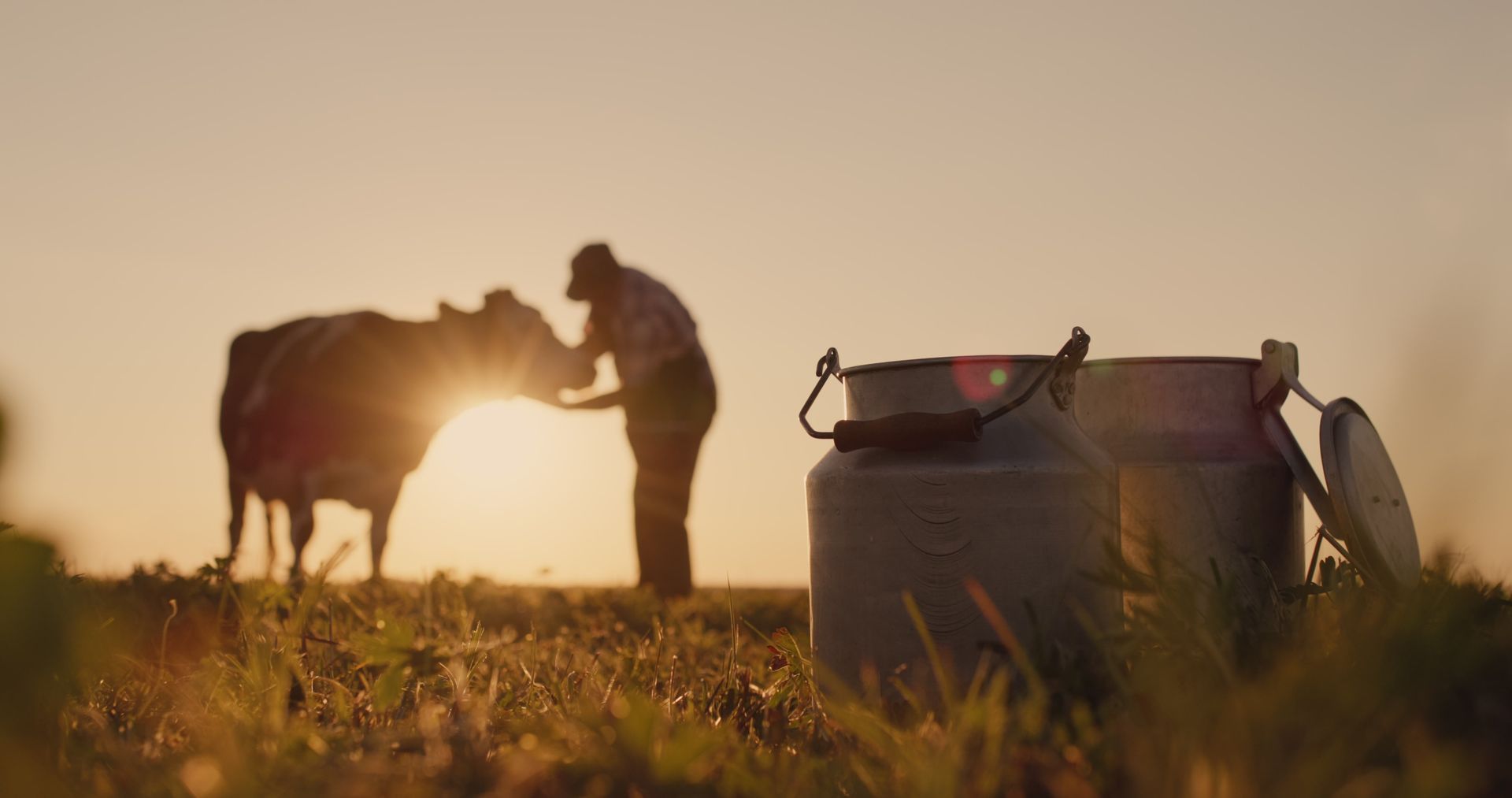The success of dairy farming is directly connected to animal welfare. For this reason, measures should be adopted in this regard, among them, the improvement of the production system with the implementation of sprinklers and fans. The goal is to minimize heat stress, which is a critical issue in dairy cattle farming, as cows in distress eat less and have an inadequate body condition score, impacting fertility decline, reduced milk production, and increased incidence of metabolic disorders.
Additionally, a balanced diet and quality water should be offered, as well as adequate shading. It is also important to train employees regarding the needs and natural behavior of these animals to employ rational cattle management. This strengthens the human-animal relationship, especially during milking, ensuring the safety of the herd and workers, achieving a herd capable of expressing its full genetic potential in milk production, adding value to the product originating from welfare standards.
What are the assessment criteria for the Animal Welfare Program for Dairy Cattle?
For dairy cattle farming, the audit consists of an evaluation criterion considered "zero tolerance," related to intentional acts of abuse and/or neglect, resulting in automatic failure.
The other assessed criteria are grouped into the following themes:
Management model: the property must have an animal welfare policy/program; employee training; emergency action plan.
Health: have a sanitary program.
Special needs, hospitalized animals: daily monitoring of cattle; maintain adequate and clean facilities; described Euthanasia Operating Protocol.
Animal observation: evaluate locomotion and body condition score; hygiene; leg injuries; broken tails.
Nutrition: referring to lactating cows, calves, heifers, and dry cows; prevention of metabolic disorders.
Facilities: must be kept in perfect maintenance conditions to avoid accidents and injuries, with non-slip flooring and appropriate lighting; pest control program; monitor temperature and humidity.
Milking: scheduled maintenance of milking equipment; there must be a standardized operational protocol for mastitis cases.
Calves and heifers: prioritize the colostrum management protocol; adjust calf pens; protocol for treating sick calves; weaning of animals.
Movement and Transport: there must be standardized operating procedures (SOPs) for loading, transporting, and unloading animals; employee training for moving healthy and special needs animals; do not mix animals from different categories and locations in the same compartment.
Biosecurity/Biosafety: the farm must have a protocol for controlling the movement of people and vehicles; provide staff with uniforms and suitable footwear, among other things.
Need more information?
By contacting QIMA you agree to our privacy policy and terms and conditions.
What are the certification criteria for the Animal Welfare Program for Dairy Cattle?
The farm must score ≥80% on the compliance criteria and no items classified as intentional acts of abuse or negligence can be identified on the day of the audit, such as: dragging conscious animals, applying electric prods on sensitive parts of animals, and hitting them. In the case of non-conformities labeled as critical, affecting animals directly, they must be immediately halted when applicable, in addition to presenting an action plan with corrective measures and undergoing a verification audit.
Why choose Animal Welfare Certification for Dairy Cattle?
Animal Welfare Certification offers several benefits for those involved, including:
Implementation of good management practices that ensure animal welfare, complying with national and international legislations and protocols.
Transparency of the production process for the end consumer.
Increased and loyal consumer market.
Facilitating commercial agreements with more demanding clients.
Be more attractive for new investments.
Why choose QIMA for Animal Welfare Certification for Dairy Cattle?
Efficient communication and service
Agile and responsive technical support at all stages.
Transparent certification process and adherence to deadlines.
Proven service quality, with a NPS satisfaction metric of 72 points.
Cost and time optimization
Integrated audits that minimize the number of visits and costs.
Simplified processes that reduce operational impacts.
Strategic and efficient allocation of auditors.
Industry leadership
Pioneering company with over 30 years of experience in food safety, organic certification, and sustainability.
Complete certification ecosystem, from field to table.
Advanced technology for compliance monitoring.
